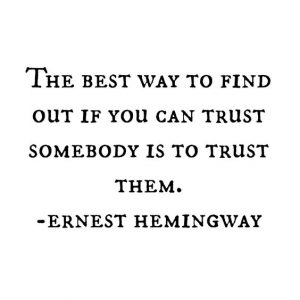Remote Working – the pathway to happy and motivated employees.

Remote Working – the pathway to happy and motivated employees.
Every manager’s goal is Productivity. That’s a capital P because expectations about what we believe staff should be able to deliver are getting higher. Work needs to be accurate, relevant and memorable…. and did I mention we want it NOW? The struggle is real, both in and out of the office. Productivity comes from happy, motivated staff who are committed to their workplace and want to stick around. Sometimes to achieve the gold standard, we need to think about how we attract new staff, and how we treat the staff we have if we want to retain them. You want your A team 100% focused on the job, at all times, to keep your hard-earned customers happy and the momentum running, no matter what your industry.
Even five years ago you may have found that the only thing to do would be to offer greater financial incentives, or take the hit on regular recruitment. But recent trends in cloud computing may hold the answer to happier, more motivated staff by offering greater autonomy and flexibility in their working lives.
The range of cloud-based applications now available can allow us to access just about any business system and all the information we need to do our jobs, from anywhere. Think about the potential of that. Immediately your hiring pool deepens considerably. Think Australia-wide, not just those looking for a convenient commute.
Working parents are another category that could offer great benefits to your business in exchange for some considered flexibility. They often have to take jobs they are vastly overqualified for, or turn down work entirely, because standard working hours don’t always work around children. Kids get sick, have to be dropped off and picked up, and have school holidays incredibly inconvenient times. If flexibility is offered through remote working, they can put their skills to their intended use – for you. Allow work to be done remotely, outside traditional hours, with flexible and fluid communication, and see the difference in focus, productivity and staff retention.
Changing the Definition of Success
Traditionally, a big part of the definition of ‘success’ in the working world has been defined by hours spent in the office. If you’re the last one there at night and the first one there in the mornings, you are ‘committed’ and ‘one to watch’, a ‘bright future ahead’ for someone so dedicated.
This way of thinking was set back in a time where women more often than not didn’t work, and men were the ones in the office setting the tone. With more women working, and working in skilled, senior positions today, the expectations have been slow to adapt.
Success shouldn’t mean working overtime consistently, sacrificing time with your family, or not having a family at all. But there is often a fear as a working parent that if they are that person leaving at 3 to pick the kids up from school, then they will be seen as less committed and therefore less likely to be promoted, even if they have arranged their time to complete tasks during working hours, or in the evenings. Instead, companies can get more out of their employees by understanding what’s important to them – what drives them to be the best version of themselves, and work out how to facilitate this version turning up to do their work. That’s how productivity happens.
It might be a sizeable shift in thinking, however it is important to acknowledge that flexible work practices and dedicated staff aren’t mutually exclusive. Some of Australia’s biggest and most well-known companies have adopted flexible working arrangements- ANZ, Woolworths, QANTAS, and Commonwealth bank to name a few. If this thinking starts from the top, and resonates throughout the culture of the organisation, then not only will you attract more top talent, you will likely retain these people for a lot longer, as so much more than a pay cheque is being offered. You are giving them a life where commitments can be met, bonds can be nurtured and resentment and guilt is kept to a minimum.
Managing Stress
The benefits of remote working go beyond recruiting and retaining staff. We all know stress has a negative impact on performance. According to Towers Watson’s Global Benefits Attitudes survey, levels of workplace disengagement significantly increase when employees experience high levels of stress. In other words, stress drives poor performance. I don’t know if you’ve had a good look around recently, but have you noticed there are people everywhere? Like wherever you look, there is someone. Humans on the road, on the footpath, in your coffee shop. Trying to cut into your traffic lane, pushing past you to get on the bus. Road rage, bus rage, train rage, walking rage, sitting drinking coffee rage. It gets overwhelming at times – and then you arrive at the office to start your day.
Whether you manage a call centre or a blue-chip investment firm, alleviating stress is a pretty sure fire way to get more out of your people. Removing the stress of the commute by offering remote working as an option to your staff can do wonders for your team’s productivity. The time they spent commuting, they can spend working. In this wonderful digital age, there are many tools to help you offer truly flexible working arrangements.
Trust is a Powerful Enabler

Remote working brings with it an innate sense of trust in your employees. You are sending a very clear signal to them that you trust that they will get their work done while out of sight. A lack of trust is rife throughout so many businesses, because of insecurity (I don’t want this person to outshine me), ego (this person can’t possibly do this better than me), time constraints (by the time I explain this task I will have done it myself) and good old politics (insert a myriad of reasons here).
Contrary to what most people believe, trust is not some soft, illusive quality that you either have or you don’t; rather, trust is a pragmatic, tangible, actionable asset that you can create – much faster than you probably think possible.
Stephen Covey, The Speed of Trust
Trust is critical to the health of any organisation, internally and in the marketplace. Allowing your workers to work remotely and making the commitment to truly facilitate this so it works, is a leap of faith most businesses can take, and the benefits it brings can be truly awesome.
Key Things to Remember About Remote Working
It’s important to note that you can’t facilitate a healthy remote working situation with your employees without changing the way you approach a few things though.
Communication
Communicate with your team communication strategically, rather than as and when. Map out your key touchpoints at appropriate times, and check in at regular times. Don’t pick up the phone whenever a thought pops into your head – not if you want the work to get done.
Direction
If your employee is unsure about something, they can’t just toss a question over their shoulder to the person at the next desk. Projects and tasks need to be very clearly briefed, so your guys and gals know what’s expected, and when. If they have the clarity they won’t waste time spinning their wheels when they’re not sure.
Technology
There is a plethora of tools available to keep you connected to your remote workers. So many, in fact, it can seem overwhelming. There a few mentioned below to give you a taste of what’s out there – the key thing is to work out what’s important to you, (do you need to track time? Invoice from anywhere? Share screens?) and how your team likes to communicate, then find the application that works for you.
Tools to help Remote Working
The right tools are like the right pair of shoes. They need to be comfortable, meet your needs and reflect how you like to roll as a business. If your people don’t like talking on the phone, totally fine – you can set up video meetings. Understand your team and how they like to work, and find the tool that helps them get that work done.
It’s unlikely you’ll find the silver bullet of tools that will allow you to do everything you want, and suit every person in your team. It’s best to approach them by business need, and here are a few goodies:
Communication & Collaboration
A real-time messaging app for workers. Bring your team together each morning to ask questions, brainstorm, pass files and give updates.
A system for storing and sharing files. Share files with a link to limit the size of your emails and speed up communications.
Project Management Tools
Allows you to create and delegate tasks, organise into projects to share, have conversations within each project and creates to-do-lists for employees. You can also add all relevant project attachments.
A project management software that helps you arrange calendars, schedule meetings, store documents, and identity key milestones. The idea of basecamp is to take you away from email chains, which can get messy and hard to track. This might be better for a larger team.
Google Docs
A powerful document storage and collaborative working platform that allows people to work in the same document at the same time.
Face to Face
Sharing screens is a must for remote workers, and you don’t want a laggy, frustrating system. Join.me is a great tool to allow screen sharing among your team or without customers to easily and visually step them through an issue or show them your work.
A very handy sharing platform as it’s so accessible- it ties in with the Google+ system and allows text and video conferencing.
More Specialised Systems
Some industries require a more specialised set up to allow remote working. For instance, If you need a business phone system or the ability to handle incoming customer calls, then team members need to be able to transfer calls, access customer information quickly and easily and communicate with managers and other team members. Wherever you work, there is likely a system that will support your workers working remotely- it’s just about committing to the cause and doing your research.
Productivity isn’t a nice to have, it’s more like a ‘better have it in copious amounts at every moment of the day and night or you’re toast’ kind of situation (especially in the world of customer service). We are in an exciting age of technology. At our fingertips are the tools to attract more and better qualified employees, retain them, and have them be motivated and productive. We just need traditional work practices to catch up. The benefits of remote working are far reaching.
There is no doubt that for most companies it will take a sizeable shift in thinking and a real belief in, and commitment to, the benefits of flexible working practices, to make it happen. But the good news is, once you have committed to the cause there are so many tools available to you to support this ethos, that making it happen is really very achievable. Like anything that’s worth doing, it’s about committing, researching, setting it in motion and supporting it continuously. It’s a brave new world of team work, and it’s right at your fingertips.
For more hints and tips on running a happy and successful call centre, download our free guide to the psychology of a high performing call centre now.
Flickr cc:carolynprncss

